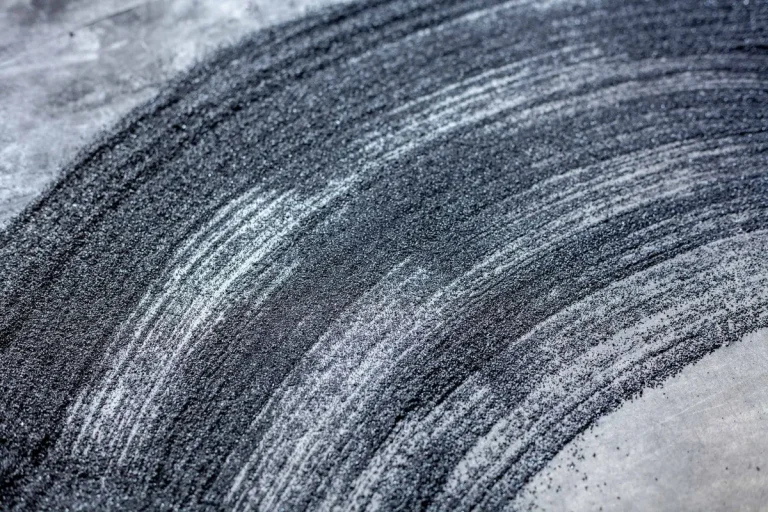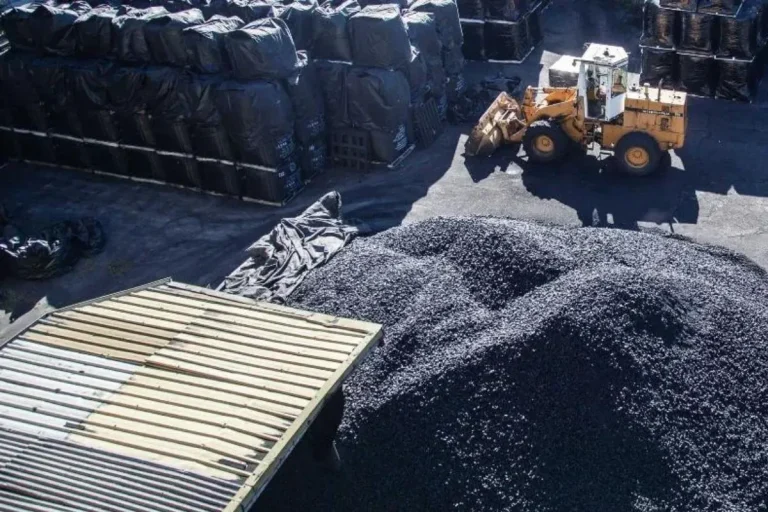Activated Carbon
Granular & Powdered Forms- High internal surface area
- Rapid diffusion kinetics
- Greater loading capacity
- Customisable particle sizing
- Manufactured by an ISO9001 accredited Quality system

Anthracite coal has been a cornerstone in water filtration since the early 20th century when water treatment plant designers in the USA and UK sought a robust, effective medium. Its popularity stemmed from availability and its perceived hardness, measured by the Mohs scale, which was believed to withstand rigorous backwashing over time. Additionally, anthracite’s high carbon content, ranging from 80% to 98%, signalled both purity and resistance to chemical breakdown, further enhancing its appeal as a filtration medium.
As dual-media filtration systems gained popularity, anthracite was combined with sand to enhance the filtration process. Anthracite’s low specific gravity allows it to float above the sand layer during backwashing and filtration, creating a dual-layered filter bed that improves water clarity and reduces turbidity.
At James Cumming & Sons, we manufacture anthracite-type industrial Filter Coal with optimal uniformity coefficient, consisting of hard, durable cubic subangular particles free of clay, shale and impurities. Here is an overview of anthracite’s history and why our alternative is a more efficient, cost-effective solution.
In the 1980s, new legislation in Australia mandated the filtration of drinking water, which highlighted the need for more efficient and cost-effective alternatives to anthracite. Due to the unavailability of anthracite deposits locally, our then Managing Director for 50 years, John Cumming’s discovery of a local NSW bituminous coal provided a viable, economical solution.
James Cumming & Sons Pty Ltd then pioneered the use of this select bituminous coal, which has been extensively tested and consistently outperforms imported anthracite, meeting or exceeding the AWWA B100 standard.

To address this question, we first need to understand the criteria for selecting filter media and the properties that make coal suitable for water filtration. The performance of filter media is influenced by several properties, including but not limited to:
C&S Brand Australian Filter Coal meets all these criteria, making it an excellent choice for water filtration.
To evaluate why filter coal outperforms anthracite, it’s crucial to compare their key characteristics and how these factors impact performance in water filtration.
| Property | Anthracite | Australian Filter Coal |
| Hardness and durability | Anthracite resists breakdown during backwashing because of its high carbon content (92%-98%) and hardness (minimum 2.7 Moh). However, hardness alone does not ensure optimal filtration performance. | Manufactured from Australian bituminous coal, C&S Brand Australian Filter Coal exhibits excellent hardness and durability, suitable for vigorous backwashing. Unlike “Anthracite” coals, the bituminous seam used for Australian Filter Coal provides the right hardness and durability for long-term filtration performance. |
| Specific gravity | Typically has a higher specific gravity, requiring more energy and pressure for effective backwashing, leading to excess clean water wastage. |
With a lower specific gravity, this filter media enables more efficient backwashing and re-stratification, resulting in lower operational costs and improved long-term performance. |
Performance and standards
C&S Brand Australian Filter Coal meets the American Water Works Association (AWWA) Standard for Filtering Materials (ANSI/AWWA B100) and the NSF61 Standard for Drinking Water System Components – Health Effects, confirming its safety and effectiveness for potable water filtration. However, numerous water filtration plants across Australia, SE Asia and the Middle East have shown that Fixed Carbon content does not affect long-term filtration performance.
Environmental and cost benefits
From the above comparison and facts, it’s clear that C&S Brand Australian Filter Coal offers a compelling alternative to traditional anthracite in water filtration applications. Its lower specific gravity provides significant advantages in terms of backwashing efficiency, operational costs and long-term performance.
At James Cumming & Sons, we provide customised Australian Filter Coal solutions for a wide range of applications. With over 115 years of experience in pioneering coal for industry, we cater to sectors including potable water, wastewater treatment, desalination pretreatment, glass manufacturing, steelworks and iron foundries, delivering effective and safe water filtration solutions.
Contact our expert team today to learn more about how C&S Brand Australian Filter Coal surpasses anthracite and to explore our other products, including C&S Australian Activated Carbon.
for your Filter Coal, Activated Carbon and Carbon additives











James Cumming
319 Parramatta Road,
Auburn NSW 2144 Australia

© Copyright 2025 James Cummings & Sons Pty Ltd. Website by Brilliant Digital
The C&S Brand™ logo are trademarks of James Cumming & Sons Pty Ltd.
ABN 98 000 453 378